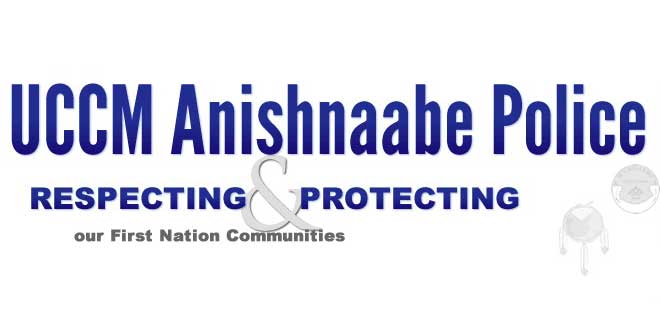A true story: nearly 40 years ago, a young couple decided to, legally, immigrate to Canada, to Ontario, from the United States.
There had been an offer of work for the husband and, on the basis of this they applied for a work permit for Canada which was granted and they moved.
The wife was pregnant with their first child when they moved here.
Events were progressing well enough except that there was a time lapse before they qualified for Ontario Health Insurance Plan (OHIP) and so they were reluctant to seek medical assistance because of their knowledge of the extremely high cost of health services in their home country, the United States, for uninsured people.
In the last trimester of the pregnancy, there were acute problems and the family finally decided to consult a family physician.
It was quickly determined that the health and possibly the lives of the mother and her child were in jeopardy and that she should be admitted to hospital where the progress of this critical final few weeks of the pregnancy could be monitored with appropriate interventions, as required.
The couple did not have health coverage in Ontario and were frightened by the idea that these costs could bankrupt them before they were even established in their new home.
Their physician told them that this would not happen here, as in the U.S.; that an accommodation would be made.
The couple eventually agreed and a very ill patient was hospitalized and her child was born but sadly did not survive.
No one was at fault here. It was an unfortunate set of circumstances brought about by the fear that, because they were as yet uninsured in Ontario, they would receive medical and hospital bills amounting to hundreds of thousands of dollars, as they knew would have been the case were they still in the U.S.
It is because of stories like this one and more recent stories of this nature, and to prevent more of them, that the Supreme Court of Canada ruled last week that residents of Canada who were seeking refugee status would be granted health benefits while their status was being determined.
The federal government had withdrawn health benefits from refugee status seekers two years ago and various challenges since that time, primarily mounted by the medical community and refugee rights organizations, finally became an issue before the Supreme Court which determined that the federal government must reinstate health benefits for this group.
The federal health minister quickly announced that his government will appeal the decision.
It is interesting to recall that it was another Conservative government, that of Progressive Conservative Prime Minister John Diefenbaker which introduced and passed a Canadian Bill of Rights in 1960. It was Canada’s first federal law protecting human rights and, in its first paragraph, Mr. Diefenbaker’s bill enshrines “the right of the individual to life, liberty, security of the person and enjoyment of property, and the right not to be deprived thereof except by due process of law.”
Mr. Diefenbaker’s Bill of Rights, groundbreaking and important as it was in its day, had some shortcomings: it only applied to areas over which the federal government held jurisdiction and not to areas, like education, that were provincial responsibilities and, although it is still a law of our land, it was largely superceded in 1982 by Prime Minister Pierre Trudeau’s Charter of Rights and Freedoms, and it would have been this most recent charter against which the refugee-seekers’ health concerns would have been measured by the Supreme Court.
But the point is that it was another Conservative government, more than a half century ago, that set in motion through this historic Bill of Rights the means by which people, such as those seeking refugee status, would have been able to access health care prior to the 2012 ruling that denied them these services.
The example cited is not, of course, a parallel situation because these people were going through the ordinary process of immigration north across the 49th parallel and problems with the pregnancy simply outran the process of the family being recognized by OHIP.
But the same situation can, and doubtless has in the past two years, applied to people in this country seeking legitimately to be recognized as refugees who have had health issues and for financial reasons they have not sought medical advice.
For all kinds of good reasons, official recognition as a refugee is not, nor should it be, a quick process.
But to people who have been accepted into our country as the first step towards being recognized as refugees, no small accomplishment in and of itself, the benefit of the doubt must be proffered when health issues are at stake.
When the current Conservative regime decided that health benefits would be denied to refugee claimants, it argued that, in some cases, the people of Canada were being taken advantage of; that some people were coming to Canada and claiming refugee status simply to gain health benefits.
The logic of this argument quite dramatically parallels the same government’s rationale for some of its proposed changes to federal election procedures as outlined in its Fair Elections Act.
Here, with regard to the issue of vouching (whereby someone with the appropriate identification can attest to poll clerks and deputy returning officers that a person without all of the requisite identification is who he/she says he/she is and, also, would be entitled to vote at that particular poll), the government argued that there was too much leeway for cheating to allow it to continue. Ditto the argument against health services for refugee claimants.
Mr. Diefenbaker’s 1960 Bill of Rights did not state that its provisions applied to Canadian citizens alone; they applied to people living in our country and it is reassuring that the Supreme Court of Canada has maintained the ideals that an earlier Conservative government considered to be of universal significance.
The current federal government is overdisposed to assume that a disproportionate part of the population is inclined to cheat.
Some people will always choose the easy way, and in some cases this will involve cheating and other forms of mendacity.
But they are in the minority, clearly, and it’s absurd to consider that a tiny number of malingerers will influence public policy in a way that is vastly disproportionate to their numbers.
We must be very pleased that the Supreme Court has recognized this imbalance, in the case of health services for refugee claimants, and also that rank-and-file Canadians have pushed back against much of what is proposed in the Fair Elections Act to the extent that it is receiving major surgery.
The notion that a few people may cheat, sometimes, is no basis for the framing of important public policy.




